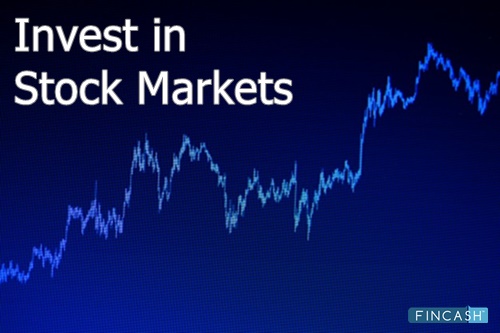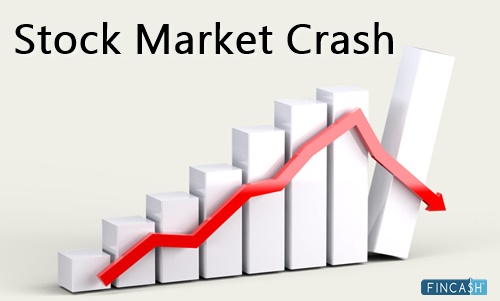
Fincash » Mutual Funds India » Impact of Elections on the Stock Market
Table of Contents
- What is a Stock Market?
- How are Stock Prices Established?
- Why Do Elections Move the Markets?
- How do Elections Impact the Stock Market?
- Analysing the Influence of Elections on Stock Markets: A Historical Perspective
- 1989 - Commencement of Coalition Era
- 1991 - Congress Returns, Economic Reforms Follow
- 1996-1998 - Unstable Coalition Governments, External Shocks
- 1999 - NDA Brings Stability, Market Rally Ensues
- 2004 - UPA's Surprise Win Jolts Markets
- 2009 - UPA's Re-Election Triggers Rally
- 2014—Modinomics Rally Begins
- 2019 - Second Term Reinforces Policy Continuity
- India's Economic Outlook for 2024
- Key Sectors to Monitor Post the 2024 Election
- Investor Tips During Election Season
- Conclusion
Impact of Elections on the Stock Market
If you're an investor in India, you've likely observed that the stock Market tends to become volatile around election time. Elections wield a profound influence on the dynamics of stock markets, serving as catalysts for Volatility and investor sentiment shifts.

As far as the Indian stock market is concerned, the Lok Sabha elections hold particular significance, shaping market movements and investment strategies. With the recent Lok Sabha elections in 2024, investors and market participants are bracing for heightened uncertainty and anticipation. In this article, let's explore how elections impact the markets and what that implies for your investments.
What is a Stock Market?
A stock market functions as a platform where individuals or entities convene to buy and sell stocks or shares of publicly listed companies. This arrangement is instrumental in enabling companies to procure funds from the public for expansion endeavours or to facilitate seamless operations. In return, investors acquire a stake in the company through shares or stocks, entitling them to a percentage of ownership.
How are Stock Prices Established?
The supply and demand dynamics dictate stock prices in the market. When the demand for a specific stock surpasses its supply, driving more buyers into the market, the stock price increases. Conversely, if there is an abundance of sellers compared to buyers, leading to an oversupply of the stock, the stock price typically declines.
Why Do Elections Move the Markets?
At their core, elections introduce uncertainty, making the stock market nervous. When a new government takes over or an Incumbent party retains power, it can lead to significant policy changes, affecting various industries and economic sectors differently. For instance, if a pro-business party wins, sectors like banking, infrastructure, and Manufacturing might benefit from favourable policies and incentives. Conversely, regulations in tobacco, alcohol, or polluting industries could become stricter.
This uncertainty around future policies and their impact creates stock market volatility as investors speculate on who the winners and losers will be under the new regime. Beyond policies, elections can influence the overall economic trajectory by affecting foreign investor sentiment, political stability, and the pace of reforms.
Talk to our investment specialist
How do Elections Impact the Stock Market?
Elections are renowned for introducing significant volatility into the stock market due to the inherent uncertainty they bring. Much like economic shifts, political changes wield substantial influence over Market Dynamics. While it's commonly assumed that stock markets rise when election outcomes favour the incumbent government, indicating political stability, the relationship between elections and stock prices is nuanced and multifaceted. Let's delve into the factors shaping this relationship:
Election Manifesto: The promises outlined in a party's election manifesto profoundly influence market sentiment. Policies geared towards fostering Economic Growth, such as tax cuts and infrastructure development, can bolster investor confidence and drive stock prices higher.
Government Ideology: Competing parties' economic vision and roadmap significantly impact market sentiment. A government committed to long-term economic growth will likely inspire optimism among investors, leading to an uptick in share prices.
Exit Poll Results: Exit polls, Offering insights into potential election outcomes, are crucial in shaping market sentiment. Favourable poll results for parties with sound economic policies often translate into market optimism and higher stock prices.
Expected Economic Policies: Anticipation of favourable economic policies under an incoming government can influence market trends, with expectations of pro-growth measures fostering positive sentiment and driving stock prices upward.
Sectoral Outlook: Elections can have divergent impacts on different industries based on the proposed policies of winning parties. Sectors set to benefit from government initiatives, such as infrastructure or renewable energy, may experience increased investor interest and stock price appreciation.
Leadership Personality: The charisma and influence of political leaders can sway investor sentiment. Leaders perceived as capable of attracting foreign investment and fostering economic growth instil confidence in markets, potentially leading to upward stock market trends.
Analysing the Influence of Elections on Stock Markets: A Historical Perspective
To comprehend the potential impact of upcoming elections on markets, examining the aftermath of past Indian elections offers valuable insights:
1989 - Commencement of Coalition Era
The 1989 elections ushered in the coalition era in India, with the National Front coalition government formed by the united opposition. This period witnessed significant political turmoil and market volatility, reflecting the destabilising effect of elections and power transitions on market sentiments.
1991 - Congress Returns, Economic Reforms Follow
Despite initial market instability and pessimism following the assassination of former PM Rajiv Gandhi, the Congress government led by P.V. Narasimha Rao introduced groundbreaking economic liberalisation policies. These reforms instilled confidence in the market, leading to Economic Recovery and growth post-election.
1996-1998 - Unstable Coalition Governments, External Shocks
The subsequent years saw frequent changes in government, with several unstable coalition regimes and external economic pressures like the Asian Financial Crisis. This perpetual political disruption and lack of policy coherence contributed to subdued market sentiments and returns.
1999 - NDA Brings Stability, Market Rally Ensues
The victory of the BJP-led National Democratic Alliance (NDA) in 1999 brought political stability and a pro-growth agenda, resulting in a market Rally. Structural reforms and economic policies aimed at attracting foreign investment and sectoral overhauls contributed to market optimism, although global events later impacted market performance.
2004 - UPA's Surprise Win Jolts Markets
The unexpected victory of the Congress-led United Progressive Alliance (UPA) in 2004 initially led to market volatility. However, subsequent reforms and targeted GDP growth objectives under the new regime restored market confidence and fueled economic growth.
2009 - UPA's Re-Election Triggers Rally
The UPA coalition's re-election in 2009 sparked a massive market rally, reflecting optimism around policy continuity. However, during the second term, governance issues and economic challenges tempered market expectations and growth.
2014—Modinomics Rally Begins
The BJP's return to power under Narendra Modi's leadership in 2014 initiated a bullish market rally. Investor optimism around governance stability and economic reforms drove market gains, although challenges such as global economic factors impacted returns.
2019 - Second Term Reinforces Policy Continuity
The BJP's decisive re-election in 2019 reinforced policy continuity expectations, albeit with less euphoria than in 2014. Investors reacted positively, anticipating continued reforms, although challenges persisted in sectors like banking.
India's Economic Outlook for 2024
After the 2024 elections, here is the anticipated economic outlook of India:
Anticipated Growth Trajectory
According to optimistic economic forecasts, India will emerge as one of the globe's fastest-growing major economies by 2024. A confluence of internal and external factors underpins this surge. Internally, India benefits from increased government spending on infrastructure, a thriving digital Economy, and rising consumer demand. Additionally, enhanced business regulations and political stability attract heightened foreign direct investment.
Impact of Elections on Market Performance
India's election cycles historically witness heightened investor engagement and market dynamism, reflecting the uncertainty and anticipation surrounding potential policy shifts and governmental stability. Analysing previous market data reveals a discernible trend: markets tend to perform robustly before and after elections, driven by expectations of political stability and continuity in economic policies.
Leading up to elections, market indices typically ascend over the six months preceding the polls as investors adjust their portfolios based on anticipated election outcomes. This trend persists post-election, buoyed by entrenched policies and newly formed government structures that provide more precise market direction.
While India's lofty market valuations signal anticipated rapid growth, prudent evaluation is essential, as unmet Earnings expectations could dampen future returns. Investors must weigh whether invested companies' fundamentals and growth prospects justify these elevated valuations.
Global economic tensions, such as trade disputes and geopolitical crises, can impact India through trade disruptions, investment fluctuations, and commodity price fluctuations. For instance, geopolitical instability in oil-producing regions may precipitate oil price spikes, adversely affecting the Indian economy.
Key Sectors to Monitor Post the 2024 Election
The 2024 elections exerted a significant influence on the Indian stock market. As investors eagerly await new policies and reforms, several sectors emerge as potential growth drivers. Here's a rundown of the top sectors to explore for maximising returns post-election:
Infrastructure
Continued government support is expected to fuel infrastructure growth, evident in the increased Capital expenditure allocated for infrastructure projects to ₹11.1 trillion for FY 2024-25. Enhanced infrastructure can attract foreign investments, bolster trade, and fortify financial stability, benefiting companies like L&T and PNC Infratech.
Power and Renewable Energy
While India boasts abundant coal and hydroelectric resources, the renewable Energy Sector presents substantial potential. The allocation of ₹10,000 crores to solar energy under the "PM Suryodaya Yojana" in the 2024 interim budget signals robust growth prospects, making this sector an enticing investment opportunity.
Banking and Financials
The banking sector remains an attractive post-election investment, vital for capital allocation and relatively secure. With India's Current Account Deficit anticipated to decrease to 1% of GDP and potential interest rate cuts by the RBI on the horizon, the sector presents appealing growth prospects.
Tourism & Hospitality
Post-election, the tourism and hospitality sector is primed for expansion, bolstered by initiatives like the "Swadesh Darshan" scheme and the sector's significant contribution of ₹15.7 trillion to the economy in 2022, approximately 4.6% of GDP, making it an attractive investment avenue.
Healthcare
With initiatives like Medicare and Mohalla Clinics, India's healthcare sector offers promising investment opportunities, particularly considering the expected rise in government spending on healthcare due to an ageing population.
Defence
Increased allocations to the defence budget reflect growing government emphasis on defence. Encouragement of foreign investments in defence could lead to heightened collaborations and amplified FDI.
Railways
Continued government focus on modernising and expanding railway infrastructure is anticipated, with initiatives like high-speed rail projects and station redevelopment gaining precedence. The National Rail Plan 2030's proposed investment of ₹50 lakh crore in railways stands to benefit companies involved in railway projects.
Oil and Gas
Government initiatives promoting domestic oil and gas production aim to augment energy security and enhance gas companies' operations.
PSU Banks
Reforms in PSU banks, including recapitalisation and governance enhancements, are ongoing. A potential BJP re-election could accelerate these reforms, bolstering asset quality, financial robustness, and lending capacity.
Startups
India's burgeoning startup ecosystem has attracted substantial investments, particularly in the FinTech, HealthTech, and EdTech sectors. The BJP government's focus on facilitating ease of doing business is set to propel startups further, fostering a conducive environment for growth.
Ethanol
With a push towards ethanol as an alternative fuel, evidenced by Union Minister Nitin Gadkari's advocacy for 20% ethanol blending by 2025 and initiatives like ethanol-powered vehicles and ethanol plants by the Indian Oil Corporation, the ethanol sector is set for significant expansion.
Investor Tips During Election Season
If you’re Investing your money in any sector these days, here are some tips that you must keep in mind:
Ensure Portfolio Diversification: Constructing a diversified Portfolio is paramount to shield investments amidst market volatility.
Implement Dollar-Cost Averaging: Regularly investing fixed amounts can mitigate investment costs and optimise returns over the long haul.
Embrace Long-Term Investment Strategies: Adopting a long-term perspective helps sidestep reactionary decisions driven by short-term market fluctuations.
Capitalise on Favorable Interest Rates: Explore opportunities to leverage higher interest rates by potentially reallocating emergency funds to high-yield savings accounts.
Seek Guidance from Financial Experts: Consulting with a trusted financial advisor can furnish tailored guidance to fortify portfolio diversification and align investments with individualised goals.
Conclusion
The Indian electoral process typically triggers short-term fluctuations in the stock market, fueled by uncertainty and speculation surrounding political transitions. However, the enduring performance of investments is predominantly shaped by broader economic growth, corporate earnings, and the continuity of consistent policies. In 2024 and beyond, it is advisable to uphold a diversified portfolio strategy and prioritise sectors poised to thrive amidst potential policy shifts. It's crucial to bear in mind that while elections may prompt transient market swings, the essence of long-term investing lies in anchoring decisions on robust business fundamentals.
All efforts have been made to ensure the information provided here is accurate. However, no guarantees are made regarding correctness of data. Please verify with scheme information document before making any investment.











